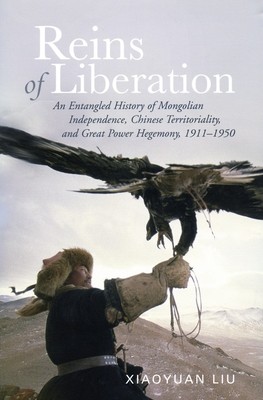
- We will send in 10–14 business days.
- Author: Xiaoyuan Liu
- Publisher: Stanford University Press
- ISBN-10: 0804754268
- ISBN-13: 9780804754262
- Format: 16.1 x 23.8 x 3.6 cm, hardcover
- Language: English
- SAVE -10% with code: EXTRA
Reviews
Description
The author's purpose in writing this book is to use the Mongolian question to illuminate much larger issues of twentieth-century Asian history: how war, revolution, and great-power rivalries induced or restrained the formation of nationhood and territoriality. He thus continues the argument he made in Frontier Passages that on its way to building a communist state, the CCP was confronted by a series of fundamental issues pertinent to China's transition to nation-statehood. The book's focus is on the Mongolian question, which ran through Chinese politics in the first half of the twentieth century. Between the Revolution of 1911 and the Communists' triumph in 1949, the course of the Mongolian question best illustrates the genesis, clashes, and convergence of Chinese and Mongolian national identities and geopolitical visions.
EXTRA 10 % discount with code: EXTRA
The promotion ends in 17d.05:53:05
The discount code is valid when purchasing from 10 €. Discounts do not stack.
- Author: Xiaoyuan Liu
- Publisher: Stanford University Press
- ISBN-10: 0804754268
- ISBN-13: 9780804754262
- Format: 16.1 x 23.8 x 3.6 cm, hardcover
- Language: English English
The author's purpose in writing this book is to use the Mongolian question to illuminate much larger issues of twentieth-century Asian history: how war, revolution, and great-power rivalries induced or restrained the formation of nationhood and territoriality. He thus continues the argument he made in Frontier Passages that on its way to building a communist state, the CCP was confronted by a series of fundamental issues pertinent to China's transition to nation-statehood. The book's focus is on the Mongolian question, which ran through Chinese politics in the first half of the twentieth century. Between the Revolution of 1911 and the Communists' triumph in 1949, the course of the Mongolian question best illustrates the genesis, clashes, and convergence of Chinese and Mongolian national identities and geopolitical visions.


Reviews